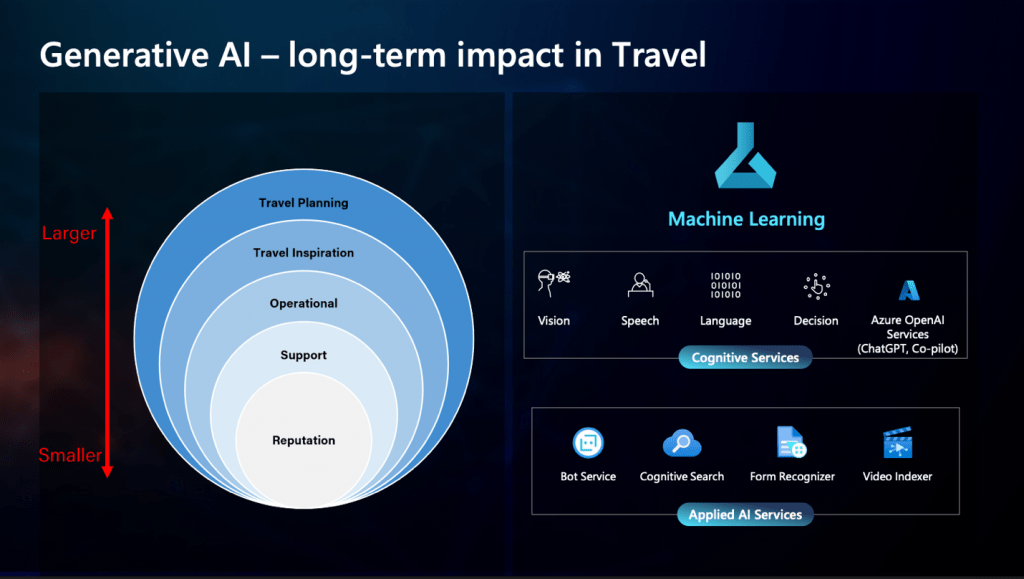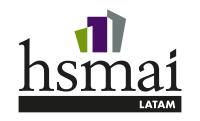By Gabriela Otto, President of HSMAI Brazil and Latam, directly from Indianapolis, USA, at the HSMAI Commercial Strategy Week 2025

If anyone still believes that the great challenge for the hotel industry in 2025 is solely competing on price or DM, they're looking in the rearview mirror.
The panel “Breaking Down Silos: How AI and Data can Transform Hotel Commercial Strategy”, with Joe Spirito (Amadeus), Katie Moro (Amadeus) and Shane O'Flaherty (Microsoft), brought a clear vision: the future of commercial strategy depends on a true breakdown of the silos between Revenue, Sales, Marketing and Technology — with AI at its core.

Important fact: 98% of hoteliers worldwide already recognize that AI will bring significant benefits.
But few still have a consistent plan to integrate AI and data into a journey that generates real results (and not just more) dashboards).
Great insights from the panel:
- Personalization has stopped being a trend and has become hyperpersonalization.
- 50% of leisure guests are willing to share their data in exchange for personalized offers (Source: Amadeus Travel Dreams).
- Guests no longer want "promotions," they want tailored experiences across all channels.
- The influence of social media and content creators is reshaping the purchasing funnel.
- China and India already show that more than 50% of travelers are directly influenced by content. creators, and this trend is also growing in Brazil.
- Virtual tours and AI-generated content are new conversion tools.
The corporate traveler demands efficiency:
- 78% of business travelers expect digital payments and self check-in.
- The 25% prefers app-based and self-service interactions, which directly impacts operations and the creation of frictionless experience journeys.
AI Agent: The New Frontier.
As we speak of GenAI (which generates content), Agentic AI It goes further: it acts autonomously, makes decisions and executes actions without human intervention.
For the hotel industry, this means:
- AI adjusting bids in real time;
- AI interacting directly with marketplaces and future “purchasing assistants” for customers.
And the most provocative point: “Your next guest could be an AI agent.”
The panel was straightforward: from now on, hotels need to prepare their teams not only to serve human guests, but also to "converse" with digital agents who search, compare, and book on their behalf.
This implies:
- Have structured content to be read by AI;
- Ensure digital presence and authority;
- Optimize for “Generative Engine Optimization” (not just SEO);
- Provide consistent data (pricing, policies, availability) across all channels, with seamless communication machine-to-machine.
Practical opportunities:
- Accelerate the integration of AI into all marketing and revenue flows.
- Preparing hotel content and data to be “understood” by AI and digital agents.
- Train teams to work in an ecosystem without silos, with total contribution goals, not just by channel or KPI alone.
Major hotel chains are investing heavily in AI. throughout the customer journey, from inspiration to post-stay, with significant results in revenue, productivity, and satisfaction:

- Radisson Hotels: AI to personalize local marketing → +22% in ad revenue and +50% in productivity.
- Hyatt: AI-powered booking engine → US$$ 40 million revenue increase in just 6 months.
- Hilton: AI Concierge (“Connie”) → 50% reduction in counter time.
- Four Seasons: AI-powered post-stay sentiment analysis → 31% increase in issue resolution and customer satisfaction.
AI isn't just a new button on the system. It's not a standalone feature, but the new fabric that ties together the entire business strategy.
Hotels that move ahead with integrated data, real-world usage AI Agent and a hyper-personalized journey will have a brutal competitive advantage in the next 12-24 months.
The question that remains: Is your hotel ready to welcome its first guest… with a digital assistant in charge of purchasing?

“It's not a question of whether AI will be used, but when, how, and by whom. And whoever applies it first will have a strong competitive advantage.”
That was the practical message left here in Indianapolis.



